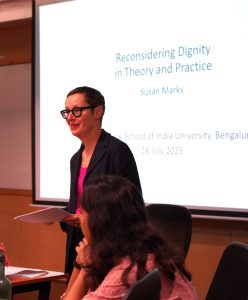 NLSIU’s UNHCR Chair on Refugee Law organised a talk on ‘Reconsidering Dignity in Theory and Practice’ by Prof. Susan Marks, Professor of International Law, LSE Law School. The talk took place at the Allen & Overy Hall at the Training Centre at the NLS campus on July 28, 2025.
NLSIU’s UNHCR Chair on Refugee Law organised a talk on ‘Reconsidering Dignity in Theory and Practice’ by Prof. Susan Marks, Professor of International Law, LSE Law School. The talk took place at the Allen & Overy Hall at the Training Centre at the NLS campus on July 28, 2025.
While at NLSIU, Prof. Marks met with the international law and human rights teaching cohort and the Council for International Relations and International Law (CIRIL), a student-run committee.
About the Talk
A central concept in constitutional and human rights law, dignity is understood to refer to the inherent worth and value of every human being, and the respect that is due to all of us simply by virtue of our being human. Whereas earlier notions of dignity were tied to status and rank, the modern conception of human dignity is celebrated as egalitarian and universal. But what if human dignity still remains bound up with hierarchy, privilege and rank? This talk will explore that question.
Speaking to us, Prof. Marks said:
“Dignity is a central concept in constitutional law and international law. There’s a huge amount of literature already on dignity, but most of it is extremely abstract, and I was interested in what it would mean to examine dignity as a worldly concept, as a relational concept, as something embodied and experienced.”
It is also the subject of her new book:
“My new book is called Trucanini’s Stare. The title comes from one of the chapters that looks at the situation of a Tasmanian indigenous woman in the 19th century who was photographed many times. She was subjected to a form of anthropometric photography, which is very undignified. But at another level. I found her to possess an incredible dignity in her bearing and that intrigued me and led me to explore her situation further.”
About the Speaker
Susan Marks is Professor of International Law in the School of Law at the London School of Economics and Political Science. She previously taught at the University of Cambridge and King’s College London. Her research seeks to bring insights from critical social theory to the study of international law and human rights. She is the author of The Riddle of All Constitutions, International Human Rights Lexicon (co-written with Andrew Clapham), A False Tree of Liberty and Trucanini’s Stare, and edited a volume entitled International Law on the Left.

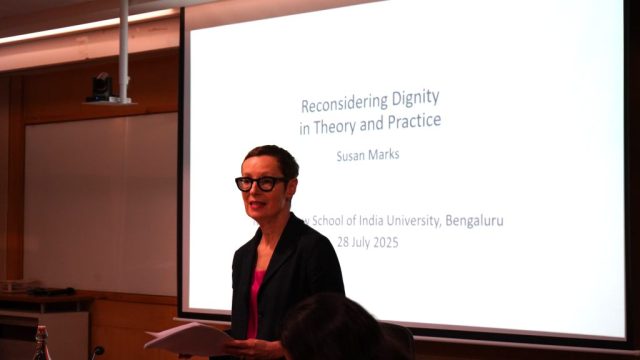
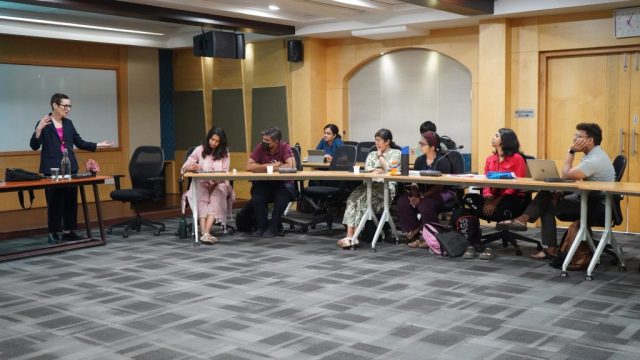
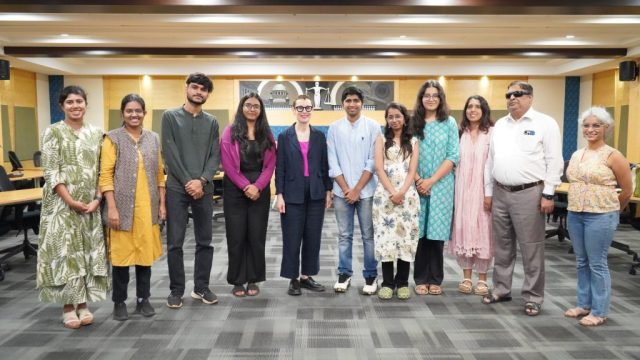
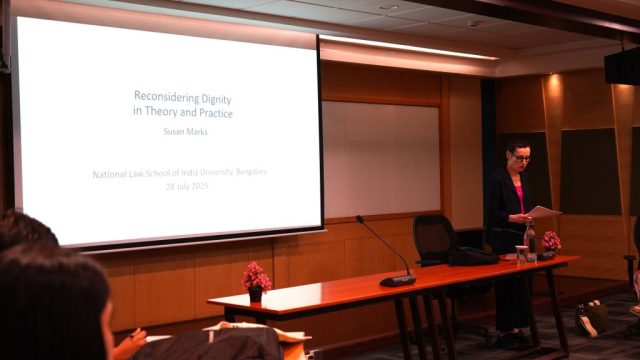
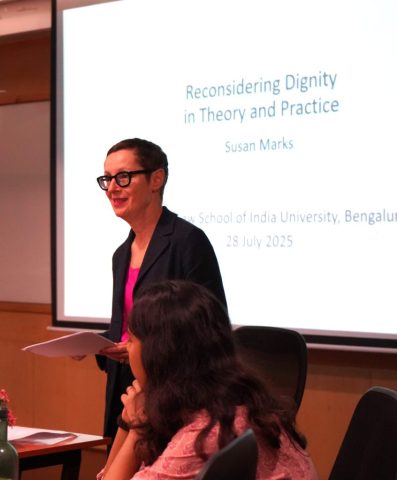
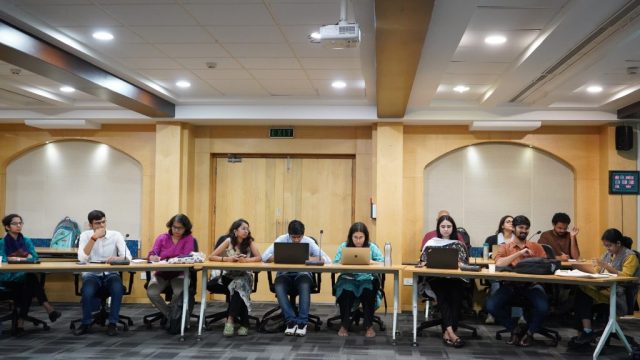
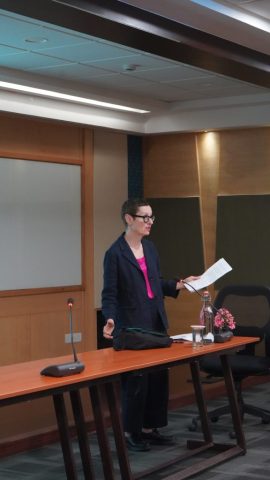
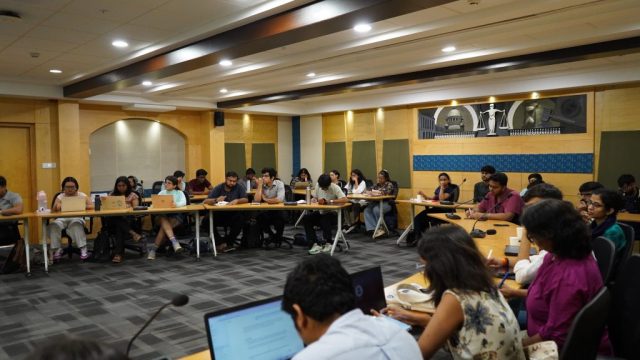
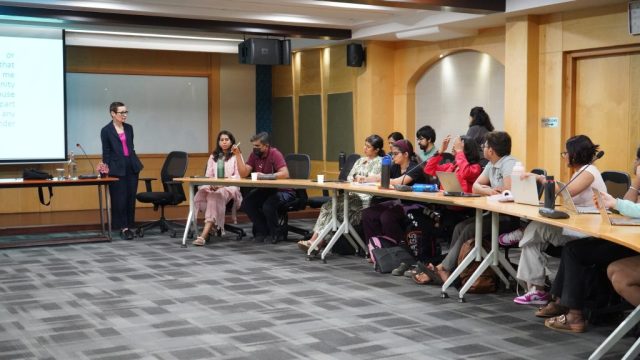
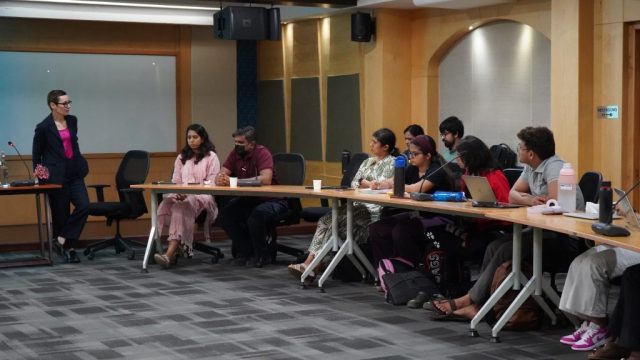
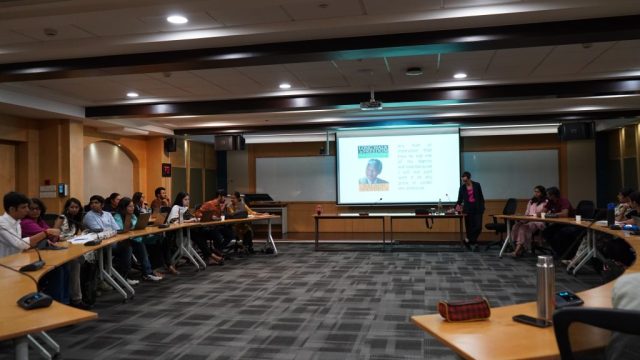
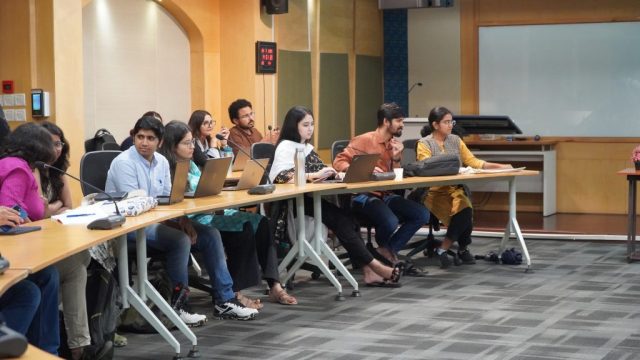
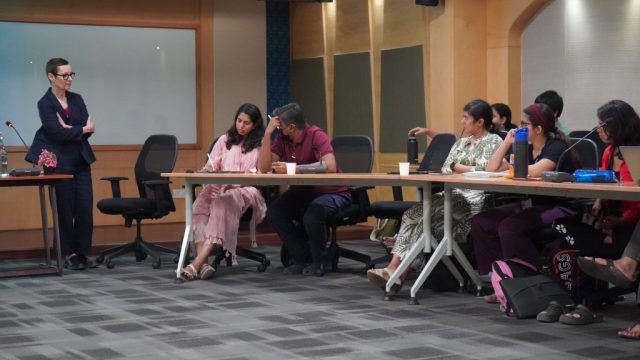
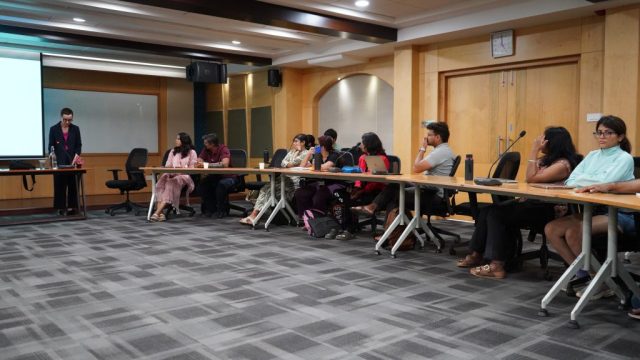
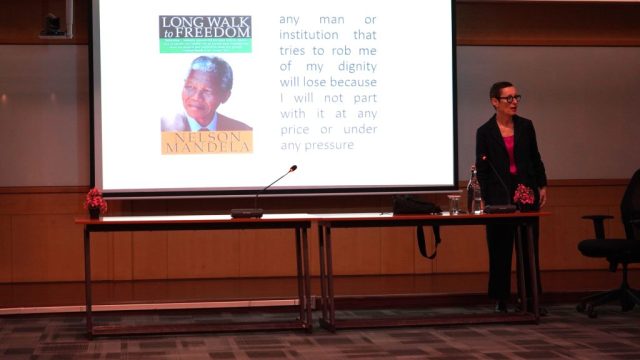
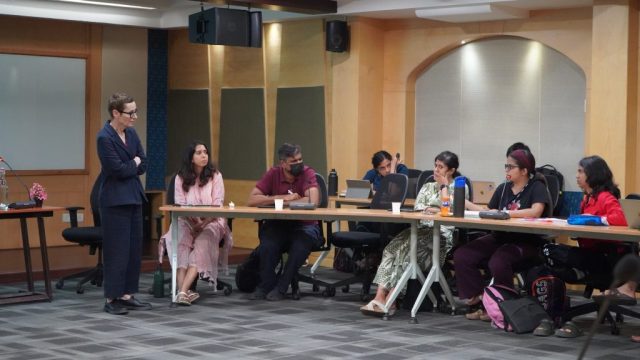
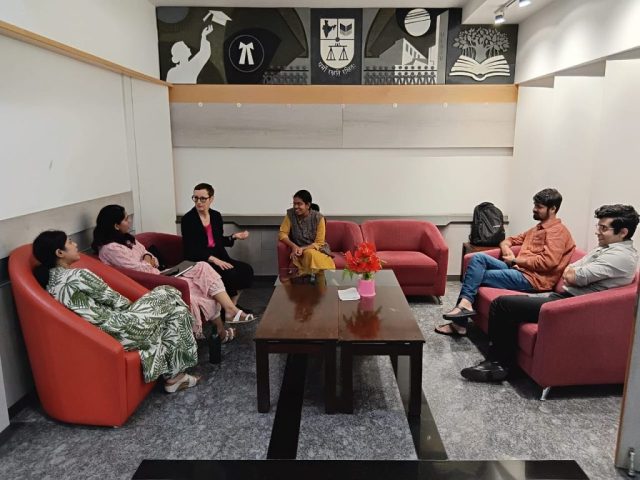
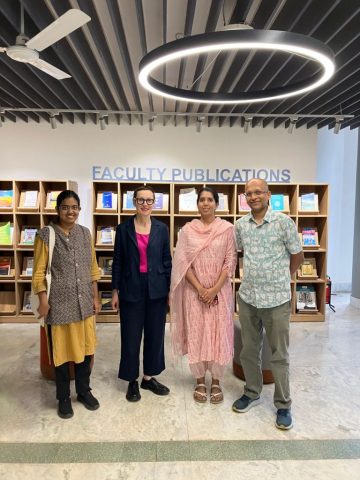
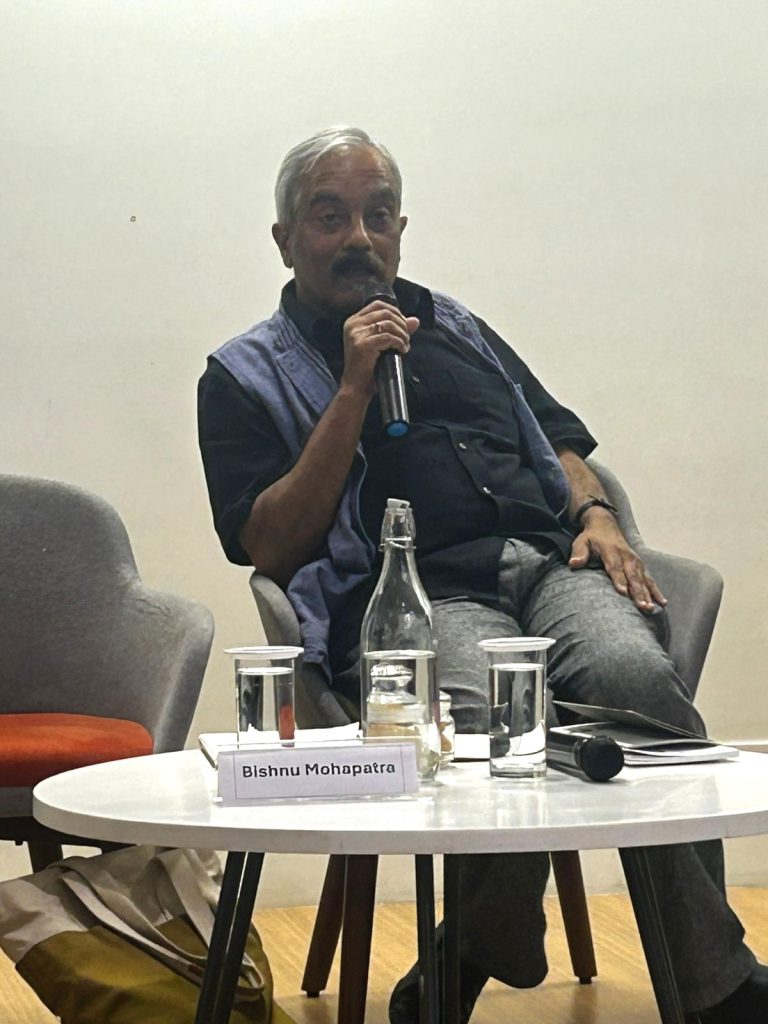 NLSIU’s Library Committee organised a poetry reading by
NLSIU’s Library Committee organised a poetry reading by 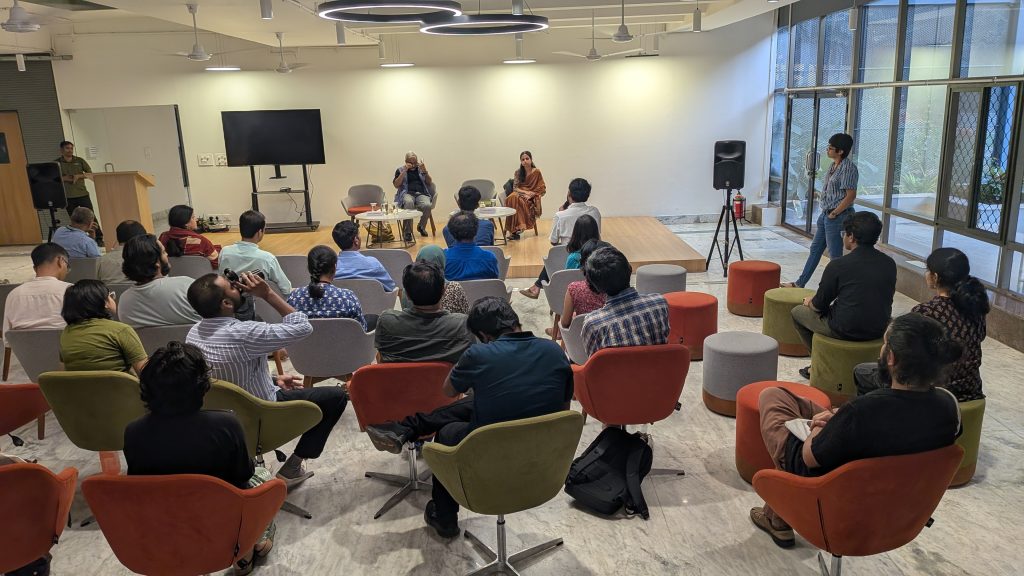 Prof. Mohapatra recited the traditions he carries: his mother’s poetry, modern Odia verse, the Ramcharitmanas, and Faiz, alongside selections from his wide ranging collection in Odia and in English. The discussion flowed from the idea of a Puranic “Barshavatar” to questions about the relationship between the poetical and the political. In response, he read his rain poem on Socrates and spoke of his own examination of metaphysical ideas. The evening closed on a note of possibility and, as one student put it, “revolutionary optimism.”
Prof. Mohapatra recited the traditions he carries: his mother’s poetry, modern Odia verse, the Ramcharitmanas, and Faiz, alongside selections from his wide ranging collection in Odia and in English. The discussion flowed from the idea of a Puranic “Barshavatar” to questions about the relationship between the poetical and the political. In response, he read his rain poem on Socrates and spoke of his own examination of metaphysical ideas. The evening closed on a note of possibility and, as one student put it, “revolutionary optimism.”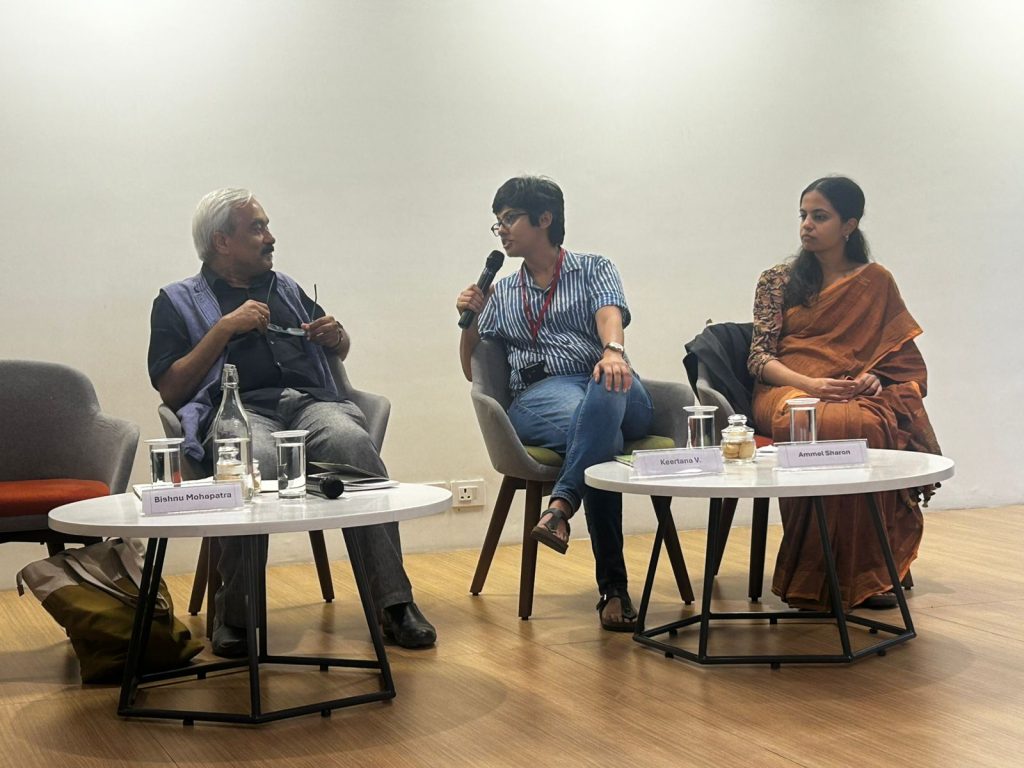 Prof. Mohapatra has authored five volumes of poetry and has translated two volumes of Pablo Neruda’s poetry into Odia. A Fragile World, a book of his poetry in English translation, was published in 2008. He served as the national jury member for the Moortidevi Award of Bharatiya Jnanpith, Delhi, from 2013 to 2015. A volume of his poetry in Hindi translation – Buddha aur Aam – was published by Pralek Prakashan, Mumbai, in 2022. Prof. Mohapatra’s poetry carries not only a theorist’s critical gaze but, more importantly, a seeker’s voice. In terms of great uncertainty and disenchantment, his poetry seeks to re-enchant the world without drowning out contemporary realities.
Prof. Mohapatra has authored five volumes of poetry and has translated two volumes of Pablo Neruda’s poetry into Odia. A Fragile World, a book of his poetry in English translation, was published in 2008. He served as the national jury member for the Moortidevi Award of Bharatiya Jnanpith, Delhi, from 2013 to 2015. A volume of his poetry in Hindi translation – Buddha aur Aam – was published by Pralek Prakashan, Mumbai, in 2022. Prof. Mohapatra’s poetry carries not only a theorist’s critical gaze but, more importantly, a seeker’s voice. In terms of great uncertainty and disenchantment, his poetry seeks to re-enchant the world without drowning out contemporary realities.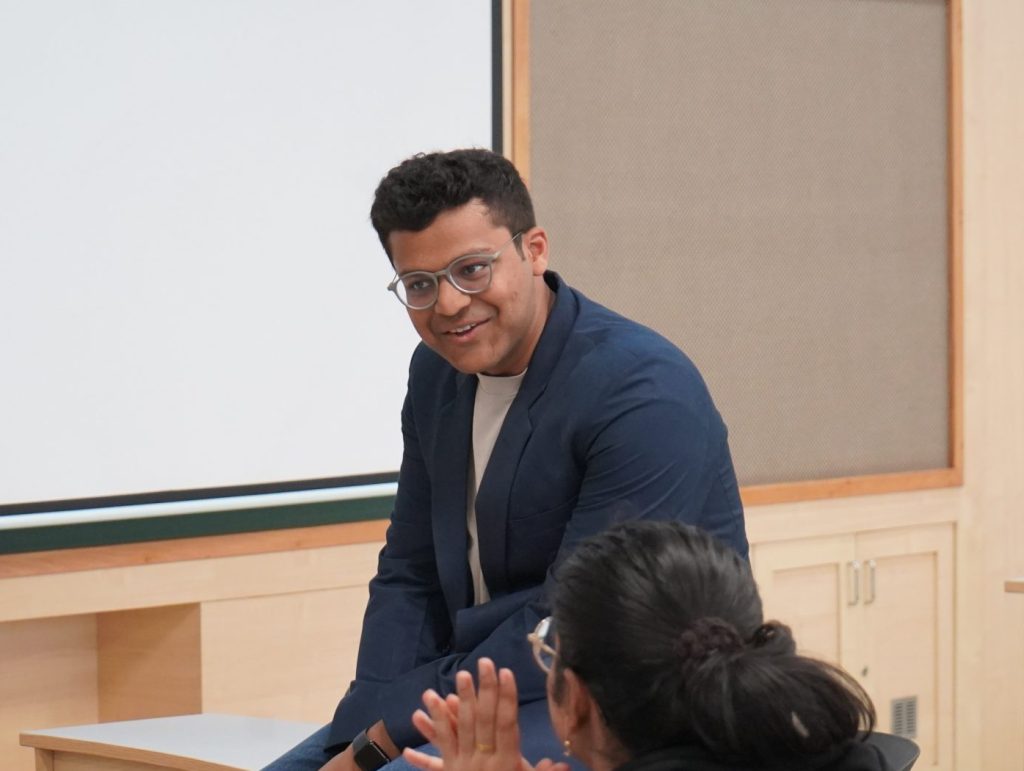 The
The 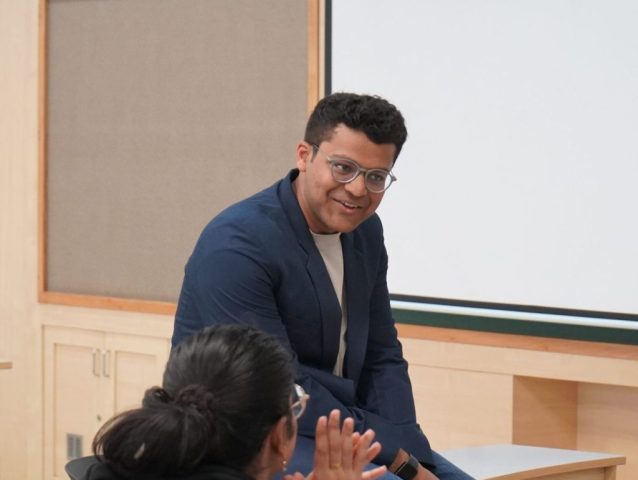
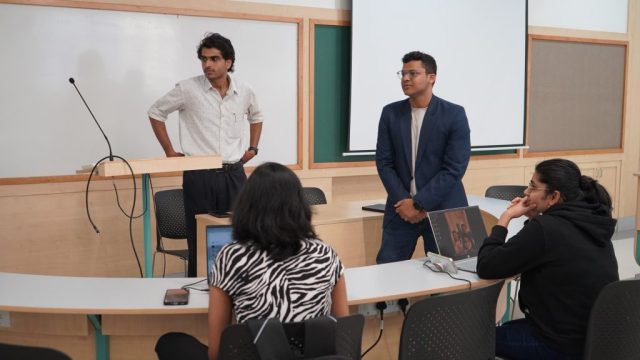
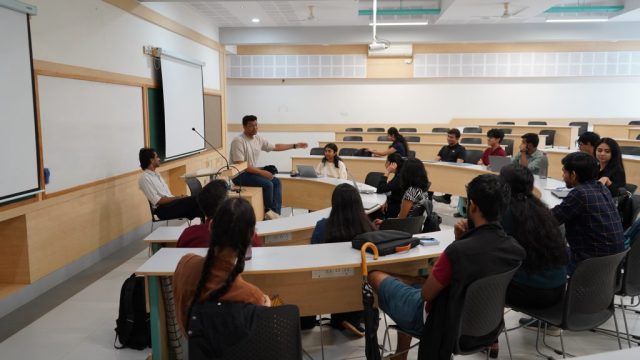
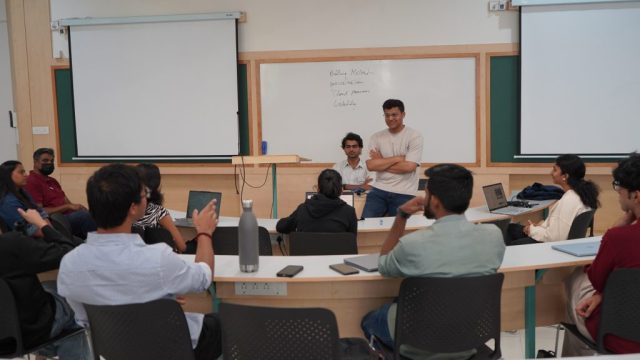
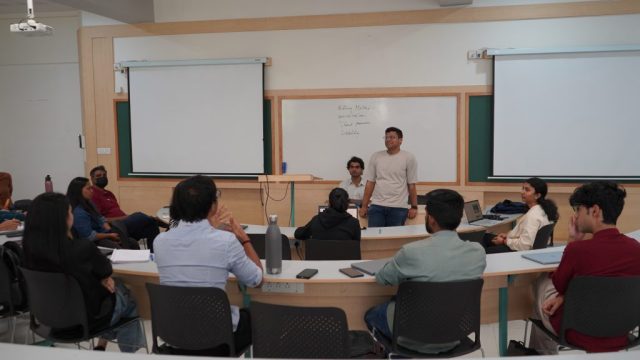
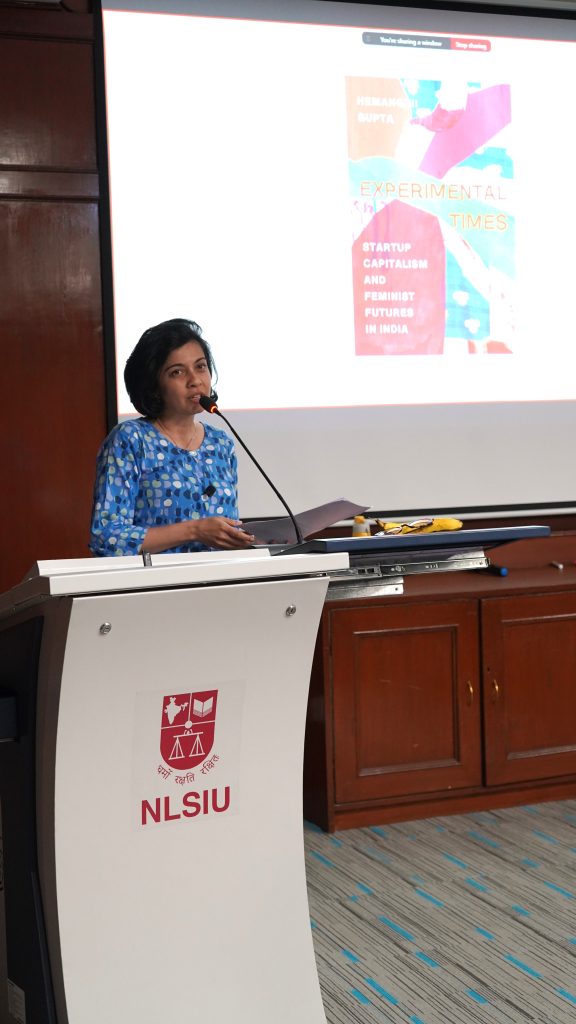 NLSIU’s
NLSIU’s 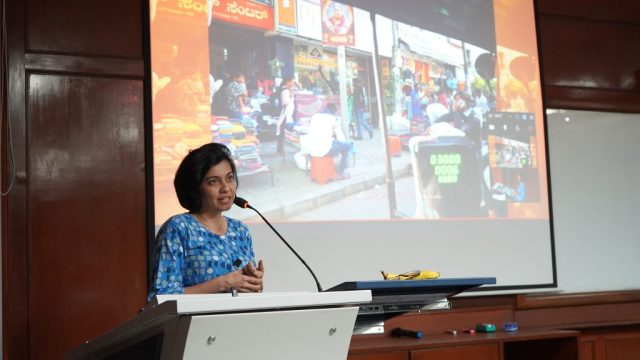
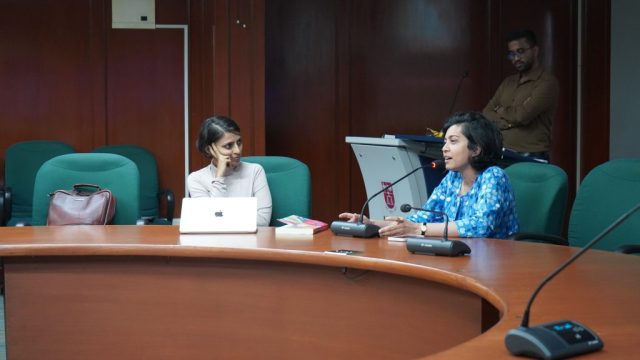
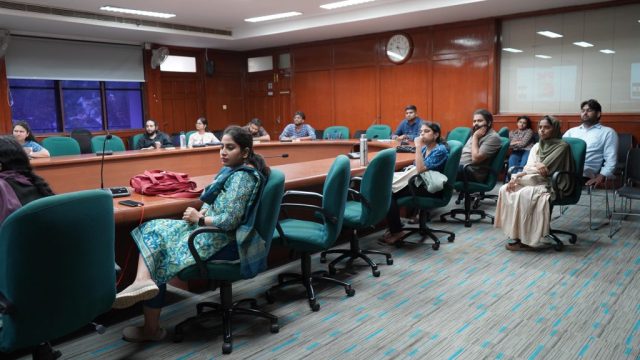
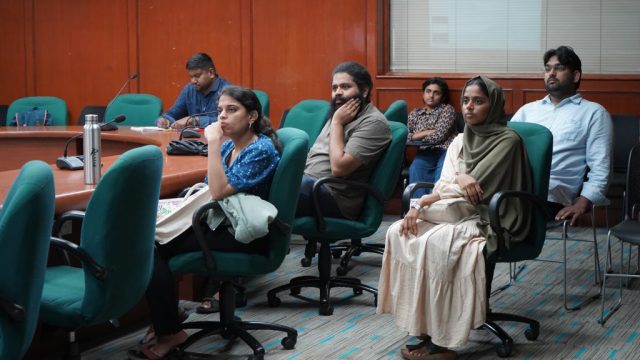
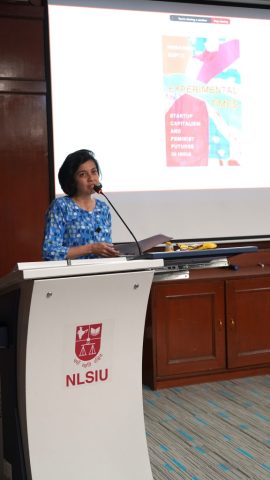
 Outlook-ICARE Rankings 2025: Top 13 Government Law Institutes | July 2025
Outlook-ICARE Rankings 2025: Top 13 Government Law Institutes | July 2025 THE WEEK-Hansa Research Survey 2025: India’s best colleges | June 2025
THE WEEK-Hansa Research Survey 2025: India’s best colleges | June 2025 India Today Best Colleges | June 2025
India Today Best Colleges | June 2025